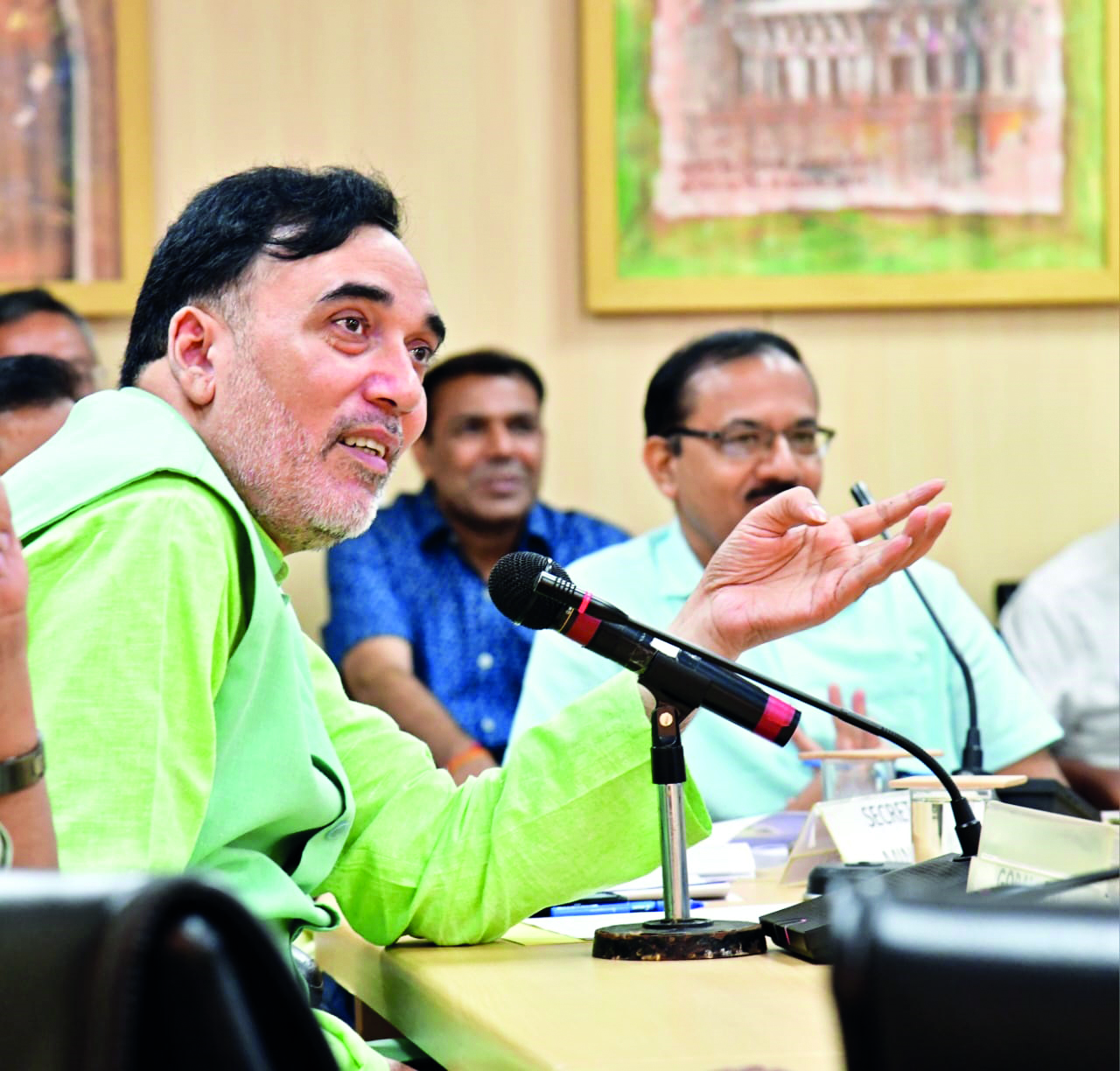Minister seeks positive suggestions from BJP, Cong to tackle pollution

New Delhi: Delhi’s Environment minister, Gopal Rai, has reached out to the presidents of Delhi’s BJP and Congress parties with a request for constructive suggestions to enhance the Winter Action Plan aimed at reducing air pollution in the city. In a letter to the party leaders, Rai highlighted the collaborative efforts needed to address Delhi’s pollution challenges and invited them to contribute ideas for the upcoming plan.
In his communication, Rai emphasised that the Winter Action Plan will focus on three primary areas, actions by the Delhi government, cooperation with neighbouring states, and collaboration with the Central government. He stressed that reducing pollution requires a collective effort, not opposition. “Pollution can be reduced only with everyone’s cooperation, not by opposition,” Rai stated.
The Environment minister’s letter provided an overview of the current pollution scenario in Delhi, referencing a report by the Centre for Science and Environment (CSE). According to the report, only 31 per cent of the pollution in Delhi is attributed to local sources, while the remainder originates from neighbouring states in the National Capital Region (NCR). Rai underscored this point to highlight the importance of a coordinated approach across jurisdictions.
Rai also noted the progress made by the Delhi government in curbing air pollution through various initiatives. He detailed the successful implementation of both the “Summer Action Plan” and the “Winter Action Plan,” which have been instrumental in reducing pollution levels. “Due to various measures by the Delhi Government, pollution in Delhi has decreased by about 30% over the last nine years, even as it rises in other cities across the country,” Rai remarked. The letter further outlined the achievements of the Delhi government in addressing air quality issues. It highlighted the increase in the number of good, satisfactory, and moderate air quality days from 110 in 2016 to 206 in 2023. The average levels of PM10 and PM2.5 have also seen significant reductions. For instance, the PM10 level has decreased from an annual average of 324 in 2014 to 219 in 2023, and PM2.5 levels have fallen from 149 to 106 over the same period.
Rai also mentioned the government’s efforts to boost electric vehicle adoption and improve public transportation. “Under the EV policy, around 13 to 16 percent of private vehicles in Delhi are now electric. We are the first government in the country to deploy nearly 2,000 electric buses,” he noted. Additionally, the Delhi government has focused on increasing the city’s green cover, with forest area expanding from 20 per cent in 2013 to 23.06 per cent in 2021.
In anticipation of the winter season, Rai indicated that the Delhi government is preparing for possible emergency measures, such as artificial rain, to address acute pollution scenarios. The letter concluded with an appeal for any positive suggestions from the opposition parties that could be incorporated into the Winter Action Plan. “Our goal is to reduce Delhi’s pollution. If you have any constructive suggestions on the three main areas of the action plan, please send them promptly so we can include them,” Rai urged.
This outreach is part of a broader strategy by the Delhi government to tackle air pollution through comprehensive planning and inter-governmental cooperation.



